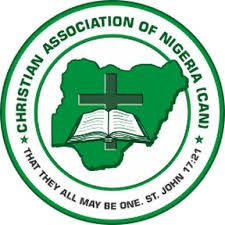
Mina: NAHCON decries prevalence of fake pilgrims, demands refunds over poor services
The National Hajj Commission of Nigeria (NAHCON), on Sunday decried the invasion of Mina and Arafat by fake pilgrims which resulted in inadequate tents in Mina.
The Chairman of NAHCON, Alhaji Zikrullah Hassan, stated this during a working visit to Mutawif for Pilgrims from African non-Arab countries, in Makkah, the Kingdom of Saudi Arabia.
“First, I would like to react to the fact that there was an invasion of this year’s Hajj by illegal pilgrims and it was embarrassing.
“I don’t know the percentage but we saw people who had no business in Mina and a few days later they turned Mina into a market place and a carnival.
“However, we were not in a position to checkmate them. We do not have the security control because there was no way we could handle the issue, an embarrassment to us.
“There was no way we could check them. Only the appropriate authorities can do that.”
Hassan said that the same tent space used for the 2022 Hajj of about 43,000 pilgrims, was the same tent Nigeria used for 95,000 pilgrims for this year’s hajj.
“In view of the inadequate tent space, many pilgrims who looked towards an enjoyable Hajj had to find themselves under the sun for days.
“And they had nowhere to go but remain under the sun. Many didn’t know that the best we can do as a Hajj mission is only to complain. We had no power or control over the issue.
“We were just helpless and this is not a good one for the pilgrims who have looked towards an enjoyable Hajj.”
He said like the issue of tents, the issue of food was poorly served by the company, adding that meals had no Nigerian touch.
According to him, “This year, a lot of food served to pilgrims was not eaten and even when they came, they were very late.
“NAHCON was helpless on the issues of the tent space and feeding. We had no control and management but we take the blame because the pilgrims know us they don’t know you.
“They believed we were responsible, yet we are helpless. We also went through the pain. Some of our places were turned into a refuse dump and at times some of our toilets lacked water.”
The NAHCON boss, therefore, demanded that going forward, the Commission should be allowed to handle feeding of pilgrims at Mina and Arafat to ensure that Nigerian pilgrims get value for their money.
“As far as feeding is concerned, I think it should just return to the commission because if you return feeding to us we will be able to manage our problems among ourselves.
“We will be able to screen the caterers and ensure that they have the Nigerian touch. The food we had this year doesn’t have the Nigerian touch at all.
“And, therefore, we will write a letter of request for refund.”
Speaking on behalf of the Executive Secretaries of the 36 States and the FCT Chairmen of Pilgrims Boards, Alhaji Salihu Abubakar of Adamawa, said the contracted company was taking a risk by insisting on feeding pilgrims in Mina and Arafat.
He said every state board complained about the lack of food, adding that the contracted company will fast lose its image and the confidence of the pilgrims.
“He cited the Adamawa State pilgrims tents, where there was no lunch and dinner on June 26 and there was no breakfast on June 27 and there were very few plates of lunch given on June 27.
“It was when we were on our way to Muzzalifah that food packs that did not contain water and juice were given to us and I, as the Executive Secretary and my entire tent, didn’t have a single bottle of water and there was nowhere we could get water.
“On reaching Muzdalifah, some of us trekked up to Jamrat and we came back to our tents in Mina on 28 June and there was no food, no breakfast and no lunch.”
Responding, Mr Bador Bafakeeh, the Chief Executive of the contracted company, said the company observed the huge number of illegal pilgrims in the Nigerian tents in Mina and Arafat which made most of the tents very crowded.
According to him, the company checked all the number of pilgrims which increased to maybe 30 to 40 per cent than the agreed number.
“The tents were customized with the number of pilgrims agreed on and we tried to maintain it with the food and all utility services we agreed on.
“Most of our video records show that there were many illegal pilgrims in different tents when we were sharing food. A lot of official reports had been written regarding all of these cases from the Ministry of Hajj and Umrah and some government entities.”
He assured that the company would look into all the issues raised by NAHCON and subsequently convene another meeting with the Commission and all stakeholders to find a common ground.



